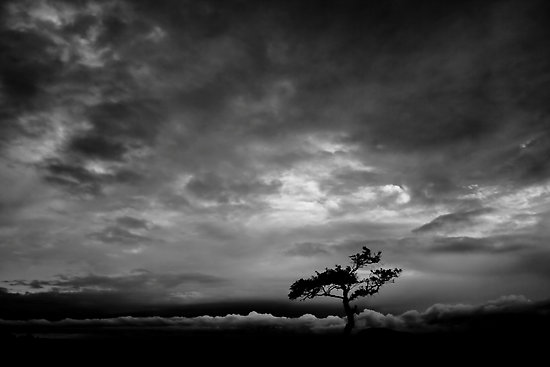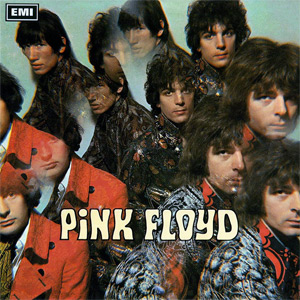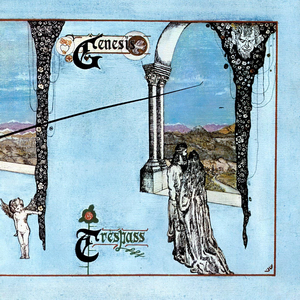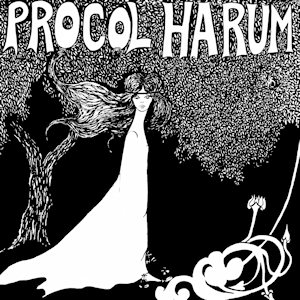 Before the storm...
This is by no means meant to be a definitive biography of any of the bands formed before the proper onset of the progressive rock scene in the late sixties and early seventies. This is merely a few lines pointing to those bands and to how they would later influence the sub-genre. When we get to where they released albums, I will of course go into them in a little more depth.
Before the storm...
This is by no means meant to be a definitive biography of any of the bands formed before the proper onset of the progressive rock scene in the late sixties and early seventies. This is merely a few lines pointing to those bands and to how they would later influence the sub-genre. When we get to where they released albums, I will of course go into them in a little more depth.
You can't help noticing that, apart from one or two exceptions, all of these bands are British. Progressive Rock seems to have been almost an exclusively British movement, with American prog rock bands only coming much, much later. Like the NWOBHM, the US was well behind the curve when it came to prog rock, still mired I guess in "flower power" and the Vietnam War which gave a focus to more protest/folk-oriented sounds, not to mention the burgeoning soul-to-become-disco scene. Why prog rock developed in Britain almost alone I don't know but I will be looking into.
I guess it has a lot to do with the public school system, as many of these bands met each other in school, and the gentle pastoral English countryside probably played its part too. While students were protesting in US universities and clashing with police, fighting for civil rights and rioting in the streets, you can just hear the English tsk and sigh "Oh, I say!" as they sipped their tea and wrote another song about meadows and rainbows...
The Moody Blues (1964 -)
Nationality: British
Original lineup: Mike Pinder, Ray Thomas Clint Warwick, Denny Laine
First relevant album: “Days of future passed”, 1967
 Impact on the progressive rock scene (on a scale of 1 to 10):
Impact on the progressive rock scene (on a scale of 1 to 10): 7
Formed in 1964, their band name was not, as I had originally thought, anything to do with the Elvis song, but was both a reference to M&B Breweries, with whom they had hoped to win a sponsorship contract (they didn't) and the Duke Ellington song, “Mood indigo.” When they formed the Moody Blues were much different to the band we have come to know, and who contributed so much to the progressive rock arena. Justin Hayward was not on board at this time, nor was John Lodge. Their first album, “The Magnificent Moodies”, would bear no resemblance to what would end up being their first real progressive rock album, and one which would bring them to the notice of the general public, “Days of future passed”. The debut was more an r'n'b effort, and it flopped, though it would later spawn a hit in “Go now” which, ironically, was a cover version of an earlier song.
The Wilde Flowers (1964 – 1967)
Nationality: British
Original lineup: Hugh Hopper, Brian Hopper, Robert Wyatt, Richard Sinclair, Kevin Ayers
First relevant album: n/a
Impact: 6
Linked to: Caravan, Soft Machine
Another band forming in 1964, oddly The Wilde Flowers never released any albums, but were one of the first bands active in what would become known as the Canterbury Scene. They are however notable for the bands their former members ended up in, two of the biggest bands in that scene, Soft Machine and Caravan.
Pink Floyd (1965 – 2014)
Nationality: British
Original lineup: Roger Waters, Syd Barrett, Nick Mason, Richard Wright
First relevant album: “The piper at the gates of dawn”, 1967
 Impact:
Impact: 9
Originally The Pink Floyd, one of the most influential bands in progressive rock music as well as psychedelia, Floyd would redefine how music was created, and performed, and perceived. Mainstay of the band David Gilmour was not part of the early lineup who recorded their first album, and would only be brought in to replace bandleader Syd Barrett, when increasing problems with substance abuse and personality issues made it impossible for Barrett to continue in the band. Under the lineup of Gilmour, Roger Waters, Nick Mason and Richard Wright, Pink Floyd would go on to become a worldwide phenomenon and a true star of the prog rock scene.
The Syn (1965-1967, then 2004-)
Nationality: British
Original lineup: Steve Nardelli, Chris Squire, Andrew Pryce Jackman, Matrin Adelman, John Painter
First relevant album: “Original syn”, 2004
Linked with: Yes
Impact: 4
Seen as a precursor to prog rock giants Yes, they lasted from 1965 to 1967, then came back in 2004 as a proper progressive rock band. They are notable for including later Yes bassist Chris Squire in their lineup.
Barclay James Harvest (1966- )
Nationality: British
Original lineup: John Lees, Les Holroyd, Stuart Wolsthenholme, Mel Pritchard
First relevant album: “Barclay James Harvest”, 1970
Linked to: The Enid
Impact: 5
Formed in 1965, they originally included Robert John Godfrey in their lineup, he later leaving to form The Enid. They were successful throughout the seventies but dogged by comparisons to The Moody Blues, leading to their being perhaps unkindly described by critics as “The Poor Man's Moody Blues.”
Soft Machine (1966-1984)
Nationality: British
Original lineup: Robert Wyatt, Daevid Allen, Kevin Ayers, Mike Ratledge
First relevant album: “The Soft Machine”, 1968
 Linked to:
Linked to: The Wilde Flowers, Caravan
Impact: 7
Another band who later dropped the “the” from their name, they were also a big Canterbury band, and included among others Robert Wyatt and Kevin Ayers in their lineup. Like many Canterbury (and many progressive bands) they are feted for their contribution to the genre but achieved little in the way of commercial success.
Stormy Six (1966-1983 (first incarnation), 1990-2010 (second incarnation)
Nationality: Italian
Original lineup: Giovanni Fabbri, Maurizio Masla, Franco Fabbri, Luca Piscicelli, Fausto Martinetti, Alberto Santagostino, Antonio Zanuso
First relevant album: "Guarda giù dalla pianura", 1974
Impact: 4
Linked to: Henry Cow
One of the first Italian prog rock bands, Stormy Six also became involved with, indeed created the idea of Rock In Opposition, (RIO) however they did not really become a true progressive rock band until the middle of the 1970s.
Genesis (1967-1997 (?))
Nationality: British
Original lineup: Peter Gabriel, Phil Collins, Mike Rutherford, Anthony Phillips
First relevant album: “Trespass”, 1970
 Linked to:
Linked to: Peter Gabriel and Phil Collins solo careers, Mike and the Mechanics
Impact: 10
What can I write about Genesis that I have not yet already? One of the founding members and drivers of the progressive rock movement through the seventies, Genesis eventually fell prey to the bright lights of chart success and turned from their prog rock roots to become just another rock, and then rock/pop band. They disbanded after one album following Phil Collins' departure, but like Yes and ELP were leading lights of the development of progressive rock. Well, to be honest there's some doubt about their breakup, but their last actual album was in 1997 (hence the question mark above) after which they got back together for some tours but have not yet released anything new, and that's over eighteen years now, so you'd have to wonder if they ever will.
Gong (1967 – 1976) (first incarnation) 1991-2001 (second incarnation) 2003-2004 (third incarnation) 2006 – (fourth incarnation)
Nationality: French
Original lineup: Daevid Allen, Gilli Smyth, Ziska Baum, Loren Standlee
First relevant album: “Magick brother”, 1970
 Linked to:
Linked to: Soft Machine, The Wilde Flowers
Impact: 8
One of the first French progressive rock acts, Gong began as more a psychedelic band and were kind of a forced situation originally, when Daevid Allen, playing with Soft Machine in France, was unable to get a visa to allow him entry into the UK. He thereafter formed Gong, but had to flee France in '68 during the student riots and went to Majorca, where he found his future saxophonist living in a cave. It says here. Trippy, man! Trippy!
Jethro Tull (1967 – 2011)
Nationality: British
Original members: Ian Amderson, Mick Abrahams, Glenn Cornick, Clive Bunker
First relevant album: “Benefit”, 1970
 Linked to:
Linked to: Fairport Convention
Impact: 8
Very much a folk-based band, with bandleader Ian Anderson proficient on the flute, and lyrics often about agriculture, folklore and rural life. They went on to become a very famous and successful band, selling over sixty million albums, despite their strange eccentricities, and even scoring hit singles.
The Nice (1967 – 1970)
Nationality: British
Original lineup: Keith Emerson, Lee Jackson, Davy O'List, Ian hague
First relevant album: “The thoughts of Emerlist Davjack”, 1967
 Linked to:
Linked to: Emerson, Lake and Palmer (ELP)
Impact: 7
With their caustic rendition of Leonard Bernstein's “America” and keyboardist Keith Emerson's antics with his keyboard, which would carry through into his association with ELP, The Nice have been credited often with recording the first ever progressive rock album, their debut, “The thoughts of Emerlist Davjack”. This has however been disputed. Whatever the case, what is not disputed is that The Nice was a training ground for one of the world's greatest, and most pompous and arrogant keyboard players, before he joined Carl Palmer and Greg Lake in the immortal prog rock power trio some years later.
Organisation (or, Organisation zur Verwirklichung gemeinsamer Musikkonzepte ) (1969 – 1970)
Nationality: German
Original lineup: Basil Hammoudi, Butch Hauf, Ralf Hütter, Alfred Monics, Florian Schenider-Esleben
First relevant album: “Tone float”, 1969
Impact: 3
With just the one album to their credit, the only real relevance Organisation (I'm not going to write it all out again, but it stands for “organisation for the realisation of common music projects”) have to the progressive rock scene is that they were a Krautrock band which split in 1970 to allow two of the members to form Kraftwerk.
Procol Harum (1967-1977) (first incarnation) 1991 – (second incarnation)
Nationality: British
Original lineup: Gary Brooker, Keith Reid, Matthew Fisher, Ray Royer, David Knights
First relevant album: “Procol Harum”, 1967
 Impact:
Impact: 7
Best known of course for their smash hit single “A whiter shade of pale” , and were therefore one of the few progressive rock bands who managed to have a big hit first time out. Unfortunately, though they remained active through the seventies, they were never again to repeat this success.
Van der Graaf Generator (1967 – 1972) (first incarnation) 1975-1978 (second incarnation) 2005 – (third incarnation)
Nationality: British
Original lineup: Peter Hammill, Chris Judge Smith
First relevant album: “The aerosol grey machine”, 1969
 Linked to:
Linked to: Peter Hammill solo career
Impact: 8
One of the most influential early progressive rock bands, Van der Graaf Generator would have a huge influence on Genesis vocalist Peter Gabriel, as well as much later, Marillion's Fish, as both tried to emulate Peter Hammill's style and vocal delivery. VDGG would be another prog rock band though who never troubled the charts, and never strayed from their prog roots, using jazz and blues as part of their musical palette. They would set the standard for much of what was to follow.
So those are, basically, what I guess you could call the parents or grandparents of progressive rock. They would have many children, some of whom would spread their message far and wide across the world, but at this point even these venerable elders of Prog Rock had yet to even record their first albums, and make their impression on the world of rock music. Some would not even make that impression with their debut, but might take another two or three before they hit the magic formula that put them forever on a course to glory and immortality. But even with all that to come, in a very real sense, the birth of progressive rock began here!